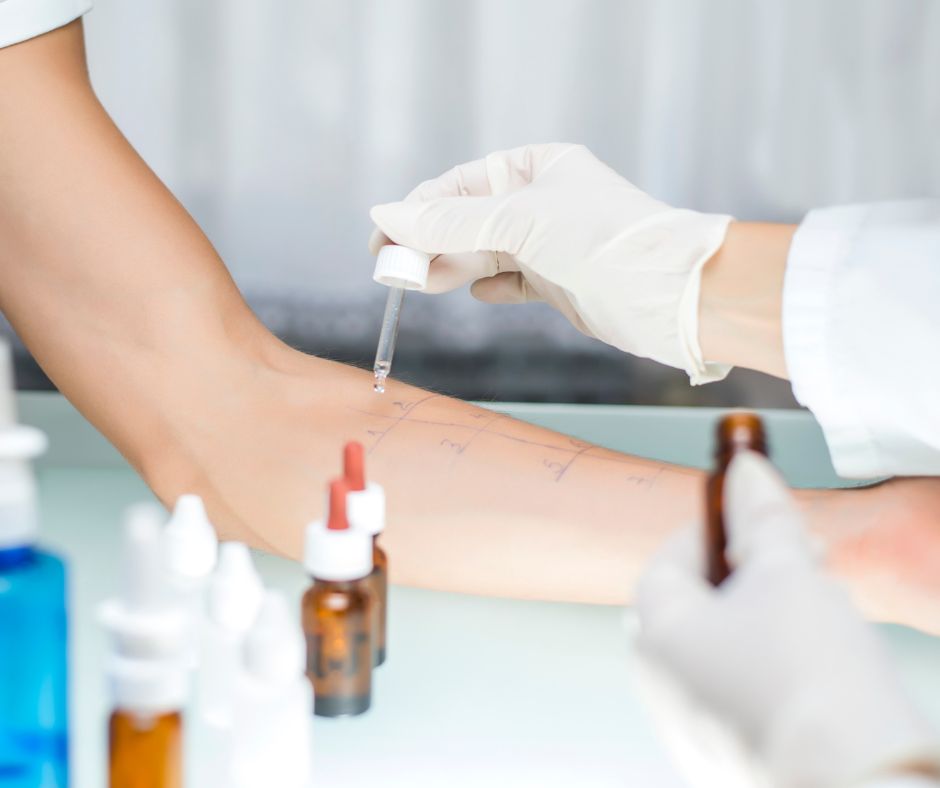Chronic allergies are a common condition that can usually be controlled with over-the-counter medications and some quality rest. But for some people, allergies can be more than a minor irritation. People with severe food or environmental allergies can require more intense treatment to manage their symptoms and avoid dangerous complications. For those people, the path to consistent relief begins with allergy testing to determine what substances are causing their allergic reactions.
If your doctor has ordered allergy testing, you may have questions. How does allergy testing work? Who conducts the tests? What can they tell you? We’re answering those questions and more as we break down the top things you need to know about allergy testing.
What is Allergy Testing?
Allergies occur when the immune system overreacts to a typically harmless substance such as pollen, latex, or certain foods. You can inhale, touch, or consume these substances, and the body’s reaction varies from person to person. Allergy testing can help identify which allergen(s) is causing your symptoms by testing your reaction to several common substances in a controlled environment. When conducted by a trained allergy specialist, allergy testing can provide specific information about what your body does, and does not, have an allergy to.
Who Performs an Allergy Test?
Allergy testing should be done by a board-certified allergist, a physician who specializes in the treatment of asthma and allergies. Allergists are highly trained to diagnose and treat allergic conditions such as food allergies, environmental allergies, contact allergies, allergic rhinitis, and more. Because allergy testing involves exposure to potentially harmful substances, it should only be done under direct supervision by a trained and licensed allergy specialist.
Who Needs an Allergy Test?
Allergy tests are safe for adults and children of all ages, but they may not always be appropriate. Allergy testing is typically recommended for patients who:
- Have chronic allergy symptoms that don’t respond well to medications or avoidance
- Have asthma or another underlying lung condition
- Have food or medication allergies
- Have had anaphylaxis or other severe reactions
Types of Allergy Tests
There are several methods for allergy testing. After conducting a physical exam and taking a thorough medical history, your allergist or healthcare provider will determine which to use based on your symptoms, the suspected allergen, and your level of reaction.
The most common types of allergy testing include:
- Skin prick (scratch) tests. During the most common type of allergy test, your doctor uses a thin needle or similar tool to lightly prick your forearm or back with various substances (typically between 10 and 50) and then closely monitors your reaction. If you have an allergy, this test will cause a red, bumpy rash or wheal to appear where the allergen was introduced. Skin tests are commonly used to identify airborne allergies, food allergies, and penicillin allergies.
- Intradermal skin tests. If your scratch test is inconclusive, your allergist may run an intradermal skin test by injecting a small amount of allergen into the first layer of your skin. This test is more sensitive than prick testing and is used to check for allergies to bee venom and medications.
- Blood tests. Blood tests measure the presence of Immunoglobulin E (IgE), an antibody associated with allergic reactions. A total IgE test measures the overall number of IgE in your blood, while a specific IgE test measures for a response to individual allergens. Blood tests may be used when skin tests are contraindicated.
- Challenge tests. In this test, patients with suspected food or medication allergies may be asked to swallow or ingest a small amount of allergen and watched for a response. This test should only be done under direct supervision of a trained allergist who can respond to emergencies.
Allergy Treatment
If your allergy testing reveals a positive allergy, your allergist and healthcare team can help you create a targeted plan to relieve your symptoms and live allergy-free. Common treatment options after testing include:
- Avoiding your triggers. Limiting your exposure to known allergy triggers is the best way to reduce symptoms.
- Antihistamines and other medications can help block the body’s response to known allergens.
- Allergy Immunotherapy. Allergy shots or our sublingual allergy drops use controlled exposure to help desensitize your body’s response to allergic substances.

